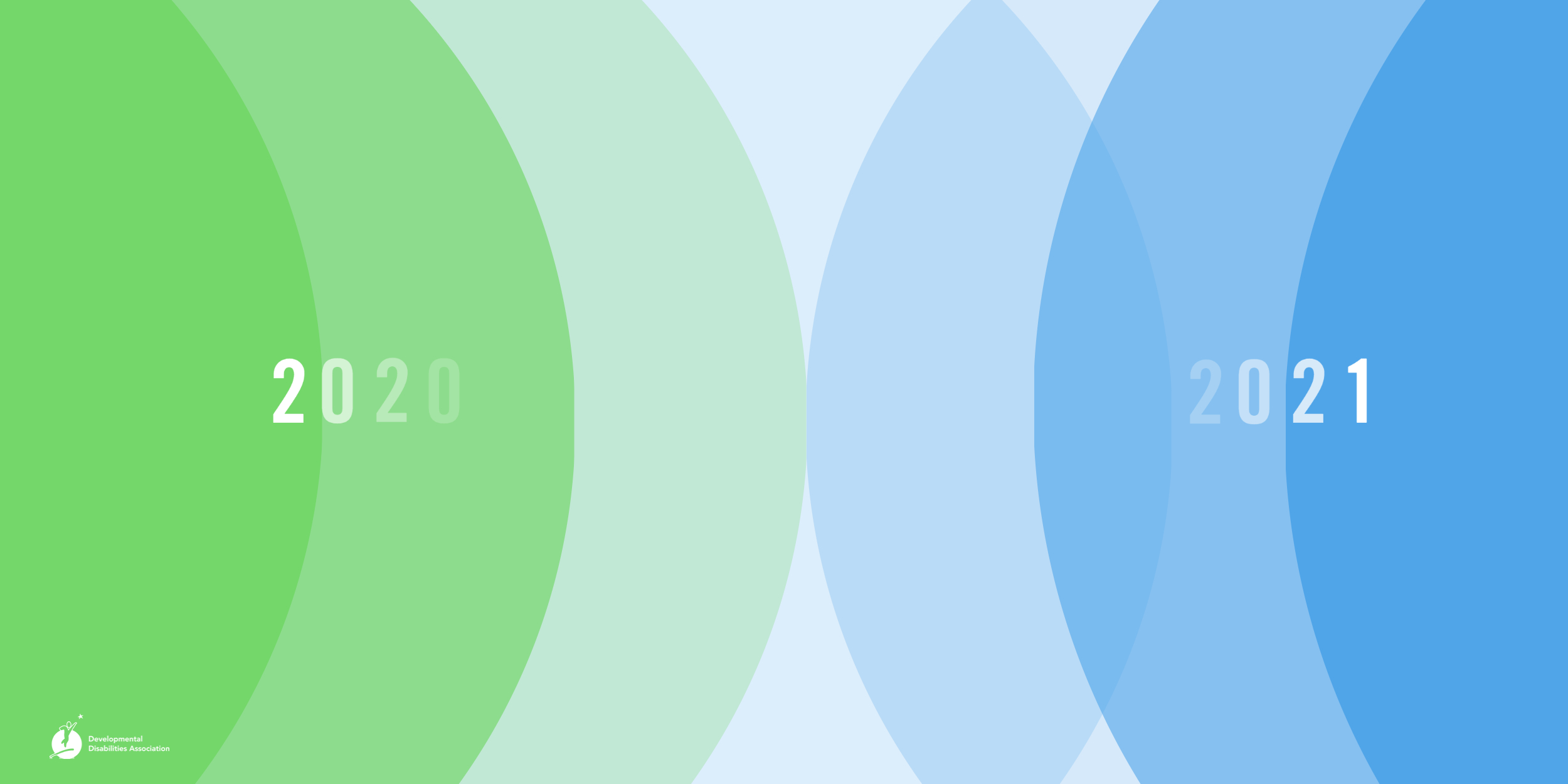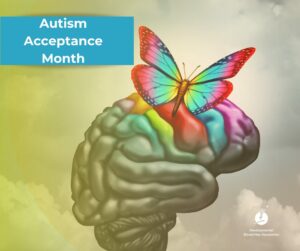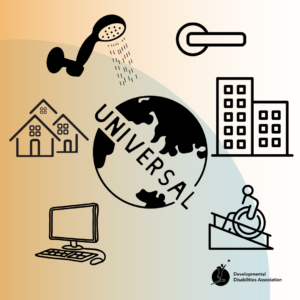2020 was a transformative year for Developmental Disabilities Association due to the COVID-19 pandemic.
We sat down with DDA’s Executive Director, Alanna Hendren, to see how things have changed for DDA from the organizational point of view and how things look moving forward into the New Year.
As the Executive Director of an organization, how has the last year changed the way you look at DDA on the whole?
The arrival of COVID early in 2020 changed everyone’s life globally like nothing else could. Countries were in and out of quarantine, disinformation flourished, supply chains failed, economies tanked and social distancing pushed us in isolation – able to rely only on the few people in our ‘bubbles’ and the rest of the world only online.
COVID hit DDA like a house on fire when one of our residents in Richmond came home from his day program, offered by another agency, unknowingly infected other residents and staff. We immediately created a specialized COVID team who replaced the staff team that was off sick or exposed. We owe the success of these efforts to our fantastic staff, who did not let our people down. We had stocked up with PPE before the pandemic hit B.C., which helped keep everyone safe, but throughout DDA – Infant Development, Child Care, Community, Employment, Residential staff and at-home providers all rose to the challenge and unleashed their creative forces to get us, collectively, through these difficult times.
Is there anything from an operational point of view that you dramatically changed because of COVID?
I was amazed at how well families adapted and changed with us, understanding that we could not risk visits in some cases and in others, offering services online. Individuals and families adjusted to the change in our adult day and employment program to in person outreach, online and on-site services. I have always been inspired by the resilience of the people who we support. They are generally good at adapting. Folks diagnosed with autism have a much more difficult time but once they established new routines, they began to relax and enjoy life again. We were fortunate to have a robust online infrastructure in place before COVID, so we just expanded it, flipped online within about one week and combined it with in-person work where we could. We had also invested many years and money in developing a small assistive technology department, which accelerated during COVID so staff could have more tools to learn and have some fun with the people they support.
What surprised you the most in 2020?
My biggest surprise was that the folks who live in our group homes have endured almost one full year of social isolation together and got along, stayed busy and had fun. I’m not sure I could have done that. Of course some people got ill, mostly from diseases related to aging and some people had a terrible time understanding why we took the community away from them, but overall, everyone did well. Some left their day programs for good because they enjoyed the slower pace at home in their elder years.
The biggest challenge during COVID was staffing. Like all businesses, we had uncertainty built into staffing because we could not predict if someone would be exposed to the virus in their lives and have to self-isolate. We had staffing shortages before we had our first COVID cases and they lasted until fairly recently. Staff postponed vacations due to travel bans so that helped out. The close call with COVID helped us realize we had to put a singular focus on recruitment, retention and training. We have to realign some of our systems to improve efficiency, communication and our provision of supports to managers and front-line staff. We also maximized the ability of technology to assist clients and staff will be developing that capacity within DDA into the future and perhaps even extend it to other areas. We’re also increasing our investment in our employees by developing online training, which increases accessibility for all staff.
What saddened you the most in 2020 with respect to DDA?
The saddest day of 2020 for me was the death of John Nielsen, our Past President. John contributed so much to DDA over the last 20 years or so – he even enticed his wife, an award-winning educator – to join our board. Everyone at DDA loved John. He supported and valued the work of our staff and presided in a time of accelerated financial stability for DDA. John played a major role on our Trust Board, together with his friend, Bill Adams. I am sad about the loss of both men to DDA, their families and their communities. John passed after living with Parkinson’s but COVID had hit so his family had limited access. We lost our chance to support them in their grieving, which would normally take place at a funeral. The loss of our traditions was saddening for all of us.
I had other moments of sadness – I was sad to have to restrict my activities, like everyone else. I was sad that DDA lost opportunities for community inclusion and in-person celebrations. I was very sad about the residents and staff who got COVID and had to suffer. There was too much sadness in 2020 – people lost businesses, tourism virtually shut down, no one could leave the country or even the province and of course anything that impacts everyone else impacts the people who we support. I feel sad just thinking of 2020! But the adaptability, creativity and the joy of the people who we support and DDA staff were really an inspiration. I had to plan for worst case scenarios in the early days and none of those plans were necessary.
Has the government(s) been doing enough to protect our most vulnerable?
I can’t really speak for other community living organizations but I think everyone has the welfare of people with developmental disabilities at heart. The government has done as good a job as possible. Generally, COVID highlighted the weaknesses in government processes and business operations and showed what worked and what didn’t. I’m sure everyone has learned a lot about their families, coworkers, friends and support systems in 2020, a year that showed us what is most important in life and what is just rat-race noise is. I loved that caregivers got more recognition – Health Care, Social Services and Child Care workers have always deserved far more status, respect and admiration than they receive. Care is one thing that has not yet been adequately monetized because it’s generally invisible, but it became visible in 2020 when the essentiality of these services was recognized, sometimes with people banging pots and pans at 7 p.m.
I hope they enjoy their new status after COVID dies down.
What was the hardest thing to deal with in 2020 as the leader of an organization?
My biggest day of panic was when COVID hit us very early and we had to stop the spread so everyone could stay safe. We didn’t know much about it yet, Public Health Orders had not yet come down, so the bureaucracies we usually rely on for direction had not yet developed any policy. So we were left on our own, which was intense for one or two weeks. It was a big responsibility and lives were at stake. That was probably the scariest time. But I saw what DDA could achieve in a crisis and we succeeded so far. Our broader DDA community came through in unexpectedly generous ways. We even succeeded in our Mission to Save Christmas. The crisis showed us what we are made of.



